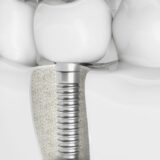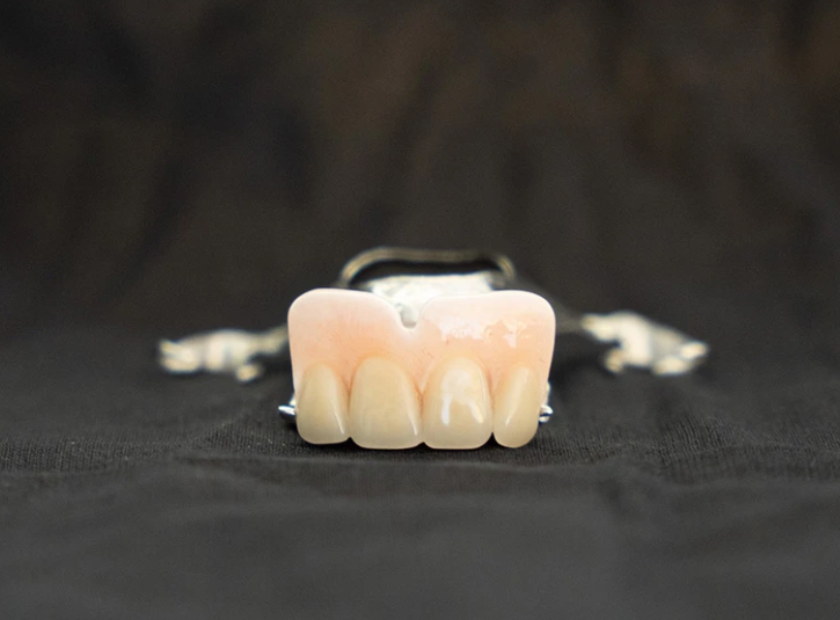How often should dentures be replaced

Dentures should be replaced when they display signs of damage or discomfort. This can include cracks or chips that affect the fit of the dentures, causing irritation along the gum line.
It is recommended that dentures be evaluated by a dental professional every two to four years. However, the lifespan of dentures ultimately depends on how well they are cared for and used. Regular cleaning and maintenance can help prolong the usefulness of dentures.
Some guidelines suggest that dentures should be replaced every five to seven years, even if they do not show signs of damage, in order to ensure the best fit and function. Ultimately, it is important to consult with a dental professional to determine the best course of action for denture replacement.
Signs That Indicate The Need To Replace Dentures
Signs of chipping, cracking, or an uncomfortable fit indicate the need for new dentures. If gums become irritated, further problems could arise. Dentists recommend cleaning dentures daily or twice a day and soaking them in a mild soap or dental cleaning solution each night.
Evaluating dentures with a dental professional every two to four years can determine how often they should be replaced, with a recommended timeframe of five to seven years.
- Chips and cracks on dentures mean it’s time to replace them.
- Poor or uncomfortable fit is a sign to replace your dentures.
- Over time, gum irritation can develop due to poor fit.
- Cleaning dentures daily is essential to maintain them.
- It’s better to brush the dentures twice a day.
- Soaking dentures nightly in mild soap or dental cleaning solution is a good idea.
- With hard denture relines, you shouldn’t expect to reline them more often than every one to two years.
- It’s recommended to replace dentures every five to seven years to restore them.
- An evaluation with your dental professional every two to four years may help determine how often you need to replace your dentures.
How Long Do Dentures Typically Last?
It’s important to have a good denture-care routine in order to extend the lifespan of your dentures. Chips or cracks in your dentures can cause poor or uncomfortable fitting, leading to gum irritation. It’s recommended to brush your dentures at least twice a day and to soak them in mild soap or dental cleaning solution each night. An evaluation with your dental professional every two to four years can also help assess how your dentures are wearing. It’s recommended to replace your dentures every five to seven years even if you don’t experience any other signs of distress, such as chipping or cracking. With hard denture relines, you shouldn’t expect to need your dentures relined more often than every one to two years.
Factors That Affect Denture Lifespan
|
Factors affecting the lifespan of dentures include:
Chipping or cracking of dentures can cause discomfort and irritation along the gum line, leading to further dental problems later on. Dentists recommend cleaning dentures at least once a day, and brushing them twice a day if possible. It’s also recommended to soak them in mild soap or a dental cleaning solution each night. The lifespan of dentures varies depending on various factors. While a good denture-care routine can help them last for several years, some circumstances may warrant replacing them earlier, such as signs of major wear or discomfort. Dental professionals recommend evaluating your dentures every two to four years to assess their condition. |
How To Properly Care For Dentures
Dentures, like natural teeth, require daily cleaning to remove food particles and prevent the build-up of plaque. It is recommended to clean your dentures at least once daily preferably twice a day with a mild soap or a dental cleaning solution and brush them delicately in circular motions. Additionally, regular visits to the dentist are essential to ensure that the dentures are still fitting correctly and don’t require any repairs or replacements. Signs of chipping or cracking on the dentures indicating poor or uncomfortable fit and can cause gum irritation. When gums become irritated, it can lead to further problems, including oral sores and infection. However, how often dentures need to be replaced mainly depends on individual factors such as fit and wear and tear. Dentists recommend evaluating the denture’s condition every two to four years to assess how they are wearing and determine the right time to replace them.
When Is It Time To Replace Dentures?
Signs of chipping, cracking, or a poor fit are indications that it is time to replace dentures. Dentists recommend cleaning dentures at least once a day, brushing them twice a day, and soaking them each night in a mild soap or dental cleaning solution.
Regular evaluations with a dental professional every two to four years can also help determine when dentures need replacing.
| When is it time to replace dentures? |
| Significant wear and tear |
| Any signs of chipping or cracking on dentures mean that it is time to have them replaced. Chips and cracks could cause a poor or uncomfortable fit. Because dentures sit along the gum line, irritation can develop over time. If and when the gums become irritated, then a lot of further problems could arise. |
| Changes in facial structure |
| Over time, due to the natural course of aging, the facial structure of the person changes. Bone resorption, which causes the bones to shrink, is the most common reason for this. Changes in facial structure indicate that it is time to replace the dentures. |
| Pain or discomfort while wearing |
| If you experience pain or discomfort while wearing dentures, then it’s time to replace them. Dentures that are not fitting properly can cause sore spots or pain in the gums. Frequent adjustments to the denture can be a sign that it’s time to replace it. |
Types Of Denture Replacements
Dentures should be replaced every 5-7 years even if they don’t show any signs of wear and tear. However, chips, cracks or a poor fit could mean it’s time to have them replaced. Dentures require daily cleaning and soaking in mild soap or dental cleaning solution at night to maintain their longevity.
| Types of Denture Replacements: |
| Traditional full dentures, partial dentures, and dental implants are the three types of denture replacements. Signs of chipping, cracking, and an uncomfortable fit mean that it is time for new dentures. It is essential to remove and clean your dentures daily, and dentists recommend brushing them twice a day. It is also wise to soak them in a mild soap or a dental solution each night. However, your dentures should last for several years with a rigorous denture-care routine. Dental professionals suggest evaluating denture wear every two to four years and replacing them every five to seven years. With hard denture relines, you may need your dentures relined every one to two years. Replacing your dentures depends on several factors, including wear and tear, fit, and the occurrence of any changes in your mouth or gums. |
Cost Of Denture Replacements
Regular dental check-ups can determine when it’s time for denture replacements. Signs such as chipping or cracking could mean poor fit and should be replaced to prevent gum irritation and further problems. Proper cleaning and maintenance can prolong the life of dentures, with a possible replacement every 5 to 7 years.
There are various factors that affect the cost of denture replacements. The most common type of denture is made of acrylic resin which is less expensive than other materials. Denture costs also depend on the type of denture replacement needed, such as partial or full dentures. In addition to material and type of dentures, the cost can also vary based on the location and experience of the dentist. It is recommended to replace dentures every five to seven years, even if there are no signs of distress to maintain good oral health. Consulting with a dental professional every two to four years can help determine the frequency of replacement and assess the wear patterns. Ultimately, investing in good denture care can help extend the life of the dentures and avoid the need for more frequent replacements.

Frequently Asked Questions For How Often Should Dentures Be Replaced
How Often Do Dentures Need To Be Replaced?
Dentures generally last several years with good care. However, signs of chipping or cracking mean it’s time for a replacement. Dentists also recommend cleaning dentures at least once daily and having them evaluated every two to four years to assess wear.
It’s generally recommended to replace dentures every five to seven years, even without signs of distress. Ultimately, how often you replace dentures depends on how well they are cared for.
How Do You Know When You Need New Dentures?
If you notice any chipping or cracking on your dentures, it’s time to consider getting them replaced. These signs can cause an uncomfortable fit and irritation along the gum line, which could lead to further problems. Dentists recommend cleaning your dentures at least once daily and brushing them twice a day.
It’s also a good idea to soak them in mild soap or a dental cleaning solution each night. Evaluating your dentures every two to four years with a dental professional can help determine when to replace them.
Can Dentures Last 30 Years?
Dentures typically last for several years with proper denture-care routine. However, it is recommended to replace them every five to seven years, even if there are no signs of distress. Signs of chipping or cracking on dentures mean it’s time to replace them.
Hard denture relines shouldn’t expect to be changed more often than every one to two years. Ultimately, the lifespan of dentures depends on how well they are cared for.
Conclusion
To avoid discomfort, irritation, and fit problems, it is important to know when to replace dentures. Signs of chipping or cracking could indicate that it is time for a replacement. Additionally, it is suggested that patients with dentures have an evaluation with a dental professional every two to four years to determine their wear and tear.
It is recommended to replace dentures at least every five to seven years, regardless of the presence of other signs of distress. Taking care of dentures regularly, including cleaning and maintenance, can help prolong their lifespan.




